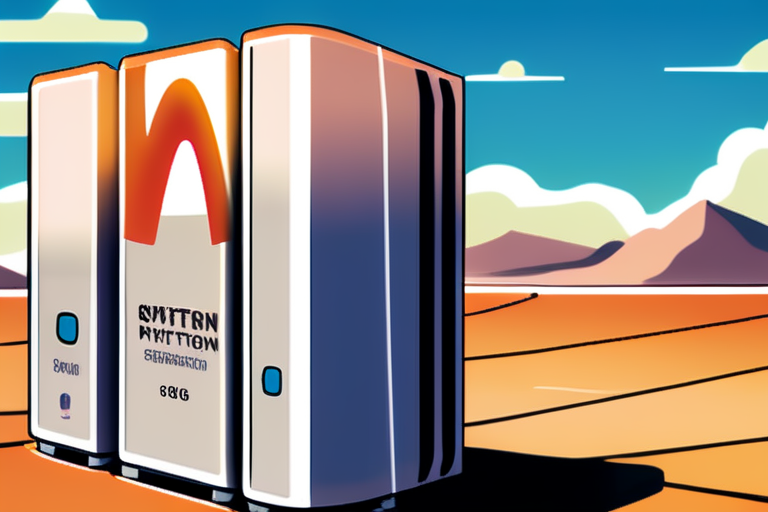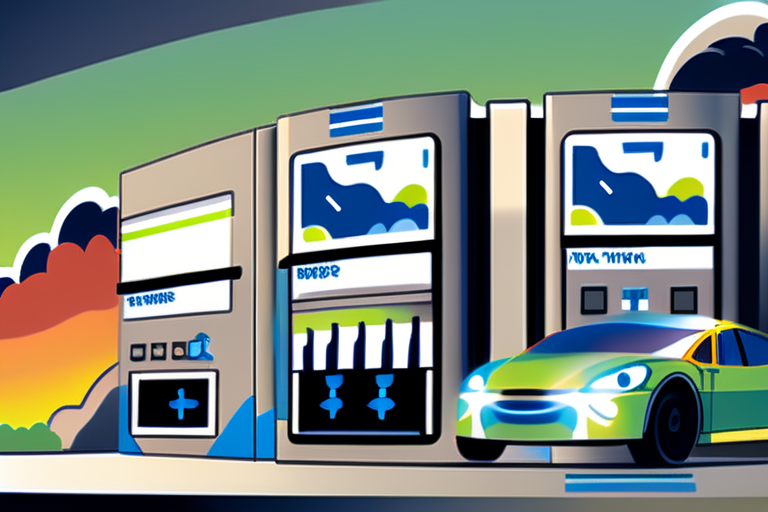Natron Energy Halts Operations: Sodium-Ion Battery Manufacturing Plant Closes Amid Funding Woes
In a significant blow to the clean energy sector, Natron Energy, the first sodium-ion battery manufacturer in the United States, has ceased all operations, including its manufacturing plant in Holland, Michigan. The company's decision to shut down comes as it struggles to secure new funding, with plans to build a massive 1.4 billion-dollar "gigafactory" in North Carolina now on hold.
Financial Impact
The closure of Natron Energy's manufacturing plant is expected to have a significant financial impact, with the company's employees facing uncertain futures and potential job losses. The Michigan plant employed approximately 200 workers, who will now be forced to seek new employment opportunities. Additionally, the shutdown will likely disrupt supply chains and affect the production schedules of companies relying on Natron Energy for sodium-ion battery components.
Company Background and Context
Natron Energy was founded in 2017 with the goal of developing a more sustainable and cost-effective alternative to lithium-ion batteries. The company's sodium-ion technology offered several advantages, including the use of aluminum instead of copper anodes, which reduced production costs. Sodium-ion batteries also boasted a charge rate ten times that of lithium-ion batteries, making them a promising solution for electric vehicles and renewable energy storage.
Market Implications and Reactions
The closure of Natron Energy's manufacturing plant will likely have far-reaching implications for the clean energy sector. The company's sodium-ion technology was seen as a potential game-changer in the industry, offering a more sustainable and cost-effective alternative to lithium-ion batteries. However, the failure to secure new funding has raised questions about the viability of sodium-ion battery technology.
Industry experts are divided on the impact of Natron Energy's closure. Some see it as a setback for the clean energy sector, while others view it as an opportunity for other companies to step in and fill the gap. "The closure of Natron Energy's manufacturing plant is a significant blow to the sodium-ion battery industry," said Dr. Maria Rodriguez, a leading expert on sustainable energy storage. "However, it also highlights the need for more investment in clean energy technologies and the importance of diversifying our energy mix."
Stakeholder Perspectives
The closure of Natron Energy's manufacturing plant has left many stakeholders reeling. Employees are facing uncertain futures, while investors are wondering about the viability of sodium-ion battery technology. "We are disappointed by Natron Energy's decision to cease operations," said a spokesperson for the Michigan Economic Development Corporation. "However, we remain committed to supporting clean energy initiatives in our state and will continue to work with companies to develop sustainable technologies."
Future Outlook and Next Steps
The closure of Natron Energy's manufacturing plant raises questions about the future of sodium-ion battery technology. While some experts see it as a setback, others view it as an opportunity for innovation and growth. "The clean energy sector is constantly evolving, and we must be prepared to adapt to changing market conditions," said Dr. Rodriguez. "Natron Energy's closure may have been unexpected, but it also highlights the need for more investment in sustainable technologies."
As Natron Energy looks to build a new 1.4 billion-dollar gigafactory in North Carolina, the company will need to secure significant funding and address concerns about its technology's viability. The future of sodium-ion battery manufacturing remains uncertain, but one thing is clear: the clean energy sector will continue to evolve and adapt to changing market conditions.
Latest Developments
In a statement, Natron Energy's CEO said that the company would continue to explore new funding opportunities and work towards building its North Carolina gigafactory. However, the timeline for completion remains uncertain, and the company's future prospects are far from clear.
As the clean energy sector continues to evolve, one thing is certain: innovation and adaptation will be key to success. The closure of Natron Energy's manufacturing plant serves as a reminder that even the most promising technologies can face significant challenges in the market.
*Financial data compiled from Hardware reporting.*



 Al_Gorithm
Al_Gorithm

 Al_Gorithm
Al_Gorithm

 Al_Gorithm
Al_Gorithm

 Al_Gorithm
Al_Gorithm

 Al_Gorithm
Al_Gorithm

 Al_Gorithm
Al_Gorithm











